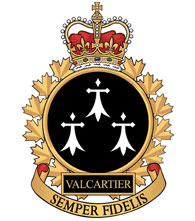
Sir Robert Laird Borden was a Canadian lawyer and politician who served as the eighth prime minister of Canada from 1911 to 1920. He is best known for his leadership of Canada during World War I.

William Lyon Mackenzie King was a Canadian statesman and politician who was the tenth prime minister of Canada for three non-consecutive terms from 1921 to 1926, 1926 to 1930, and 1935 to 1948. A Liberal, he was the dominant politician in Canada from the early 1920s to the late 1940s. King is best known for his leadership of Canada throughout the Great Depression and the Second World War. He played a major role in laying the foundations of the Canadian welfare state and established Canada's international reputation as a middle power fully committed to world order. With a total of 21 years and 154 days in office, he remains the longest-serving prime minister in Canadian history.

A History of the English-Speaking Peoples is a four-volume history of Britain and its former colonies and possessions throughout the world, written by Winston Churchill, covering the period from Caesar's invasions of Britain to the end of the Second Boer War (1902). It was started in 1937 and finally published 1956–1958, delayed several times by war and his work on other texts. The volumes have been abridged into a single-volume, concise edition.

This is a list of book lists (bibliographies) on Wikipedia, organized by various criteria.

Peacemakers: The Paris Peace Conference of 1919 and Its Attempt to End War (2001) is a historical narrative about the events of the Paris Peace Conference of 1919. It was written by the Canadian historian Margaret MacMillan with a foreword by the American diplomat Richard Holbrooke. The book has also been published under the titles Paris 1919: Six Months That Changed the World and Peacemakers: Six Months That Changed the World.

Chequers is the country house of the Prime Minister of the United Kingdom. A 16th-century manor house in origin, it is near the village of Ellesborough, halfway between Princes Risborough and Wendover in Buckinghamshire, at the foot of the Chiltern Hills, 40 miles (64 km) north-west of central London. Coombe Hill is two-thirds of a mile (1.1 km) northeast. Chequers has been the country home of the serving Prime Minister since 1921 after the estate was given to the nation by Sir Arthur Lee by a Deed of Settlement, given full effect in the Chequers Estate Act 1917. The house is listed Grade I on the National Heritage List for England.

The following is an alphabetical list of topics related to Canada.

2nd Canadian Division Support Base Valcartier , formerly known as and commonly referred to as Canadian Forces Base Valcartier, is a Canadian Forces base located in the municipality of Saint-Gabriel-de-Valcartier, 8 nautical miles north northwest of Quebec City, Quebec, Canada. The 2nd Canadian Division is stationed at the base, comprising the 5 Canadian Mechanized Brigade Group and the 2nd Canadian Division Support Group.

The following outline is provided as an overview of and topical guide to Canada:

Canada and Japan have an amicable companionship in many areas. Diplomatic relations between both countries officially began in 1928 with the opening of the Japanese consulate in Ottawa. In 1929, Canada opened its Tokyo legation, the first in Asia; and in that same year, Japan its Ottawa consulate to legation form.

Lester Bowles "Mike" Pearson was a Canadian politician, diplomat, statesman, and scholar who served as the 14th Prime Minister of Canada from 1963 to 1968.

Canada–Italy are the current and historical relations between Canada and Italy. Both nations enjoy friendly relations, the importance of which centres on the history of Italian migration to Canada. Approximately 1.5 million Canadians claim to have Italian ancestry. Both nations are members of the G7, G20, NATO and the Organisation for Economic Co-operation and Development.

When the United Kingdom declared war on Nazi Germany in September 1939 at the start of World War II, it controlled to varying degrees numerous crown colonies, protectorates, and India. It also maintained unique political ties to four of the five independent Dominions—Australia, Canada, South Africa, and New Zealand—as co-members of the then "British Commonwealth". In 1939 the British Empire and the Commonwealth together comprised a global power, with direct or de facto political and economic control of 25% of the world's population, and of 30% of its land mass.

Nikolai Alexandrovich Bulganin was the Premier of the Soviet Union from 1955 to 1958. He also served as Minister of Defense, following service in the Red Army during World War II.

The Premier of the Soviet Union was the head of government of the Union of Soviet Socialist Republics (USSR). Twelve individuals held the post. Among the most known are Vladimir Lenin and Joseph Stalin.
The foreign policies of Canada and its predecessor colonies were under British control until the 20th century. This included wars with the United States in 1775-1783 and 1812–1815. Economic ties with the U.S. were always close. Political tensions arose in the 19th century from anti-British sentiment in the U.S. in the 1860s. Boundary issues caused diplomatic disputes resolved in the 1840s over the Maine boundary. and early 1900s, in the early 20th century over the Alaska boundary. There is ongoing discussion regarding the Arctic. Canada-US relations have been friendly in the 20th and 21st centuries.